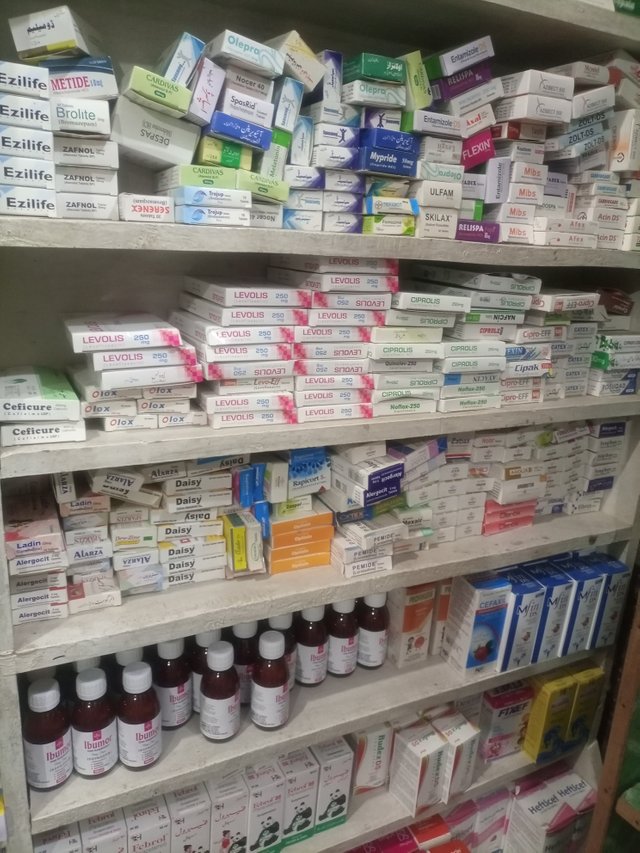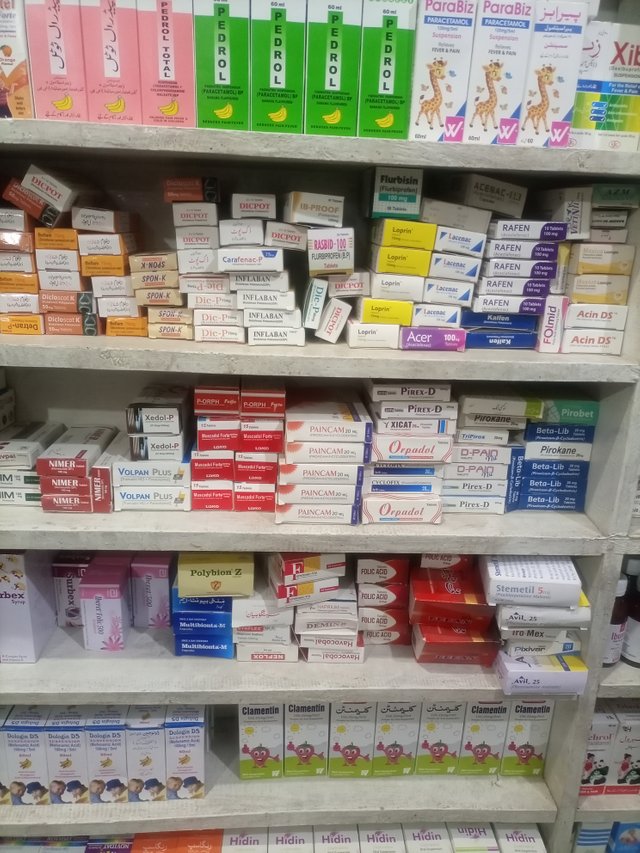Morning to night work in medical store and benefits
Morning to night work in medical store


A Day in the Life of a Medical Store Employee
Morning Shift (8:00 AM 12:00 PM)
Opening the Store
Preparation
Arrive at the store around 7:45 AM to prepare for opening. This includes turning on lights, setting up the cash register, and ensuring the store is clean and organized.
Stocking Shelves
Check the inventory and restock shelves with medicines and other healthcare products that may have been sold out the previous day.
Receiving Deliveries
Accept and verify new stock deliveries from suppliers. This involves checking the items against the delivery note, ensuring the correct quantities, and updating the inventory system.
Customer Service
Serving Customers
Assist customers with their prescriptions and over-the-counter medication needs. Provide information on usage, side effects, and storage of medicines.
Consultations
Offer advice on minor ailments and recommend appropriate over-the-counter medications or refer them to a pharmacist if necessary.
Afternoon Shift (12:00 PM - 4:00 PM)
Maintaining Inventory
Stock Management
Continuously monitor stock levels and place orders for low-stock items. Ensure that medications are stored properly, adhering to temperature and safety guidelines.
Expiry Checks
Regularly check for expired medications and remove them from the shelves. Dispose of them according to proper pharmaceutical waste disposal guidelines.
Administrative Duties
Record Keeping
Maintain accurate records of prescriptions filled, sales transactions, and inventory levels. Update patient profiles and prescription histories in the system.
Insurance Claims
Process insurance claims and handle any related paperwork. Ensure that all claims are accurately documented and submitted.
Evening Shift (4:00 PM - 8:00 PM)
Customer Interactions
Peak Hours
The evening can be a busy time as customers come in after work. Be prepared for higher foot traffic and assist customers promptly.
Follow up
Follow up with customers who had queries or pending orders. Ensure their needs are met and provide any additional information they may require.
Closing Procedures
Daily Reconciliation
Balance the cash register, ensuring that all transactions are accounted for. Prepare the cash deposit for the bank if necessary.
Cleaning
Tidy up the store, including dusting shelves, sweeping floors, and ensuring that the store is ready for the next day.
Security
Secure the store by locking all doors and setting the alarm system.
Key Responsibilities Throughout the Day
Pharmacist Interaction
Work closely with the pharmacist to ensure prescriptions are filled accurately and efficiently.
Help with the compounding of medications if required and assist in managing the pharmacy’s operational tasks.
Customer Education
Educate customers on health and wellness products, including supplements and medical devices.
Provide information on preventive care and promote healthy lifestyle choices.
Compliance and Safety
Adhere to all legal and regulatory requirements, including those set by the pharmacy board and health authorities.
Maintain a clean and safe working environment, following all safety protocols.
Working in a medical store is a dynamic and rewarding job that requires attention to detail, excellent customer service skills, and a strong understanding of pharmaceuticals. From morning to night, employees play a crucial role in ensuring that customers receive the medications and healthcare products they need while maintaining the store’s operations smoothly and efficiently.
Medical store benefits for health
Medical stores, also known as pharmacies or drugstores, play a crucial role in the healthcare system. They are often the first point of contact for individuals seeking medical advice and treatment for minor ailments. Beyond just dispensing medications, modern medical stores offer a wide range of services and benefits that significantly contribute to public health.
Here are some key advantages
Access to Medications
Medical stores provide easy access to both prescription and over-the-counter medications. This accessibility ensures that individuals can promptly begin treatment for various health conditions, which is essential for managing symptoms and preventing complications.
Professional Guidance and Advice
Pharmacists are trained healthcare professionals who can offer valuable advice on medication usage, potential side effects, and drug interactions. They can also provide guidance on managing chronic conditions, such as diabetes or hypertension, and advise on lifestyle changes that can improve health outcomes.
Convenience and Availability
Many medical stores operate with extended hours and some are open 24/7, offering convenience to individuals who need medications or health advice outside of regular business hours. This is particularly beneficial for emergencies or for those with demanding schedules.
Preventive Healthcare Services
Modern pharmacies often offer preventive healthcare services such as vaccinations, blood pressure monitoring, cholesterol checks, and diabetes screening. These services help in early detection and management of health issues, potentially reducing the need for more extensive medical interventions.
Health and Wellness Products
In addition to medications, medical stores stock a variety of health and wellness products, including vitamins, supplements, and personal care items. These products support overall health and well-being and can be particularly beneficial for individuals looking to maintain a healthy lifestyle.
Patient Education
Pharmacists provide education on various health topics, such as the importance of medication adherence, the impact of diet and exercise on health, and ways to manage stress. This education empowers individuals to take control of their health and make informed decisions.
Chronic Disease Management
For individuals with chronic diseases, medical stores can be a valuable resource for ongoing management. Pharmacists can help with medication synchronization, provide reminders for refills, and offer tips for managing symptoms and preventing flare-ups.
Cost-Effective Care
Pharmacies often offer cost-effective care options. They can recommend generic medications that are cheaper but equally effective as brand-name drugs. Additionally, many pharmacies offer discount programs and loyalty rewards that can help reduce the overall cost of medications.
Collaboration with Healthcare Providers
Pharmacists frequently collaborate with doctors, nurses, and other healthcare providers to ensure comprehensive care. This collaboration helps in managing complex medication regimens and ensures that all aspects of a patient’s health are considered.
Home Delivery Services
Many medical stores offer home delivery services for medications and health products. This is particularly beneficial for individuals with mobility issues, chronic illnesses, or those living in remote areas. Home delivery ensures that they receive their medications on time without the need to travel.
Medical stores are an integral part of the healthcare ecosystem. They provide essential services that promote health, prevent disease, and improve the quality of life for individuals. By offering convenient access to medications, professional advice, preventive services, and more, medical stores help bridge the gap between patients and the broader healthcare system. As the healthcare landscape continues to evolve, the role of medical stores will likely expand, further enhancing their contribution to public health.
Upvoted! Thank you for supporting witness @jswit.
You've got a free upvote from witness fuli.
Peace & Love!